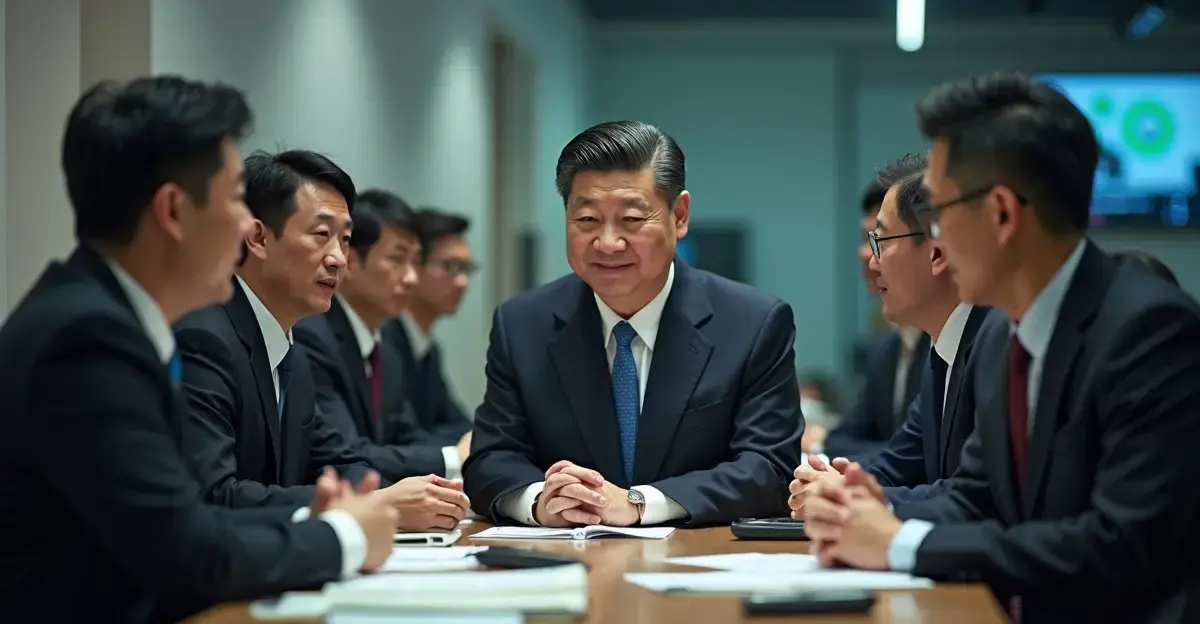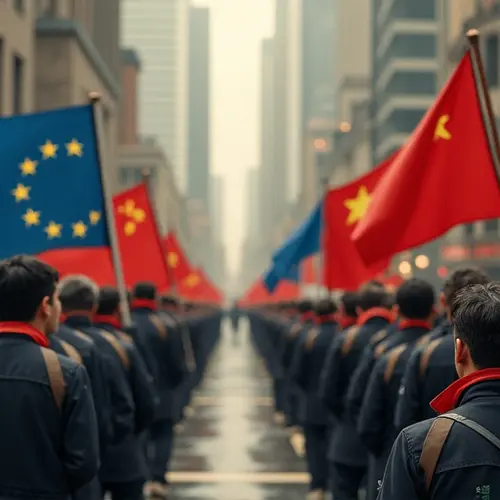China expands export controls on rare earth metals and lithium batteries, adding 14 companies to unreliable entities list ahead of potential Trump-Xi summit, escalating trade tensions.

China Escalates Trade War with Expanded Export Restrictions
China has dramatically escalated its trade war strategy by implementing comprehensive export controls on critical rare earth metals and advanced battery technologies. The Ministry of Commerce announced on October 9, 2025, that it will restrict exports of additional rare earth elements including holmium, erbium, thulium, and ytterbium, along with high-performance lithium batteries and related manufacturing technologies.
Strategic Timing Ahead of High-Stakes Summit
The timing appears calculated to strengthen China's negotiating position ahead of an expected meeting between President Xi Jinping and US President Donald Trump at the APEC summit in South Korea. 'China is clearly demonstrating its leverage over critical supply chains that the West depends on for everything from electric vehicles to defense systems,' says Joris Teer, an economic security analyst at the EU Institute for Security Studies.
The new measures extend beyond simple export restrictions. For the first time, China is requiring licenses for any products containing trace amounts of Chinese-sourced rare earths, effectively giving Beijing control over global supply chains. 'This represents a fundamental shift in how China wields its resource dominance,' Teer adds.
Unreliable Entities List Expanded
Simultaneously, China added 14 foreign companies to its unreliable entities list, including Canadian semiconductor research firm TechInsights and US anti-drone technology company Dedrone. These companies now face complete bans on trade and investment activities with China.
The restrictions on lithium batteries specifically target high-energy density batteries (300 Wh/kg or higher) and manufacturing technologies for lithium iron phosphate cathodes and artificial graphite anodes. 'China controls approximately 80% of global battery production capacity, making these restrictions particularly impactful,' notes Elmar Otten of Dutch trade association Evofenedex.
Global Supply Chain Implications
The European Chamber of Commerce in China reported that only 14% of European companies' export license applications were approved between August and early September, indicating the practical challenges businesses face. 'We're seeing a hardening of the trade war where China is exploiting its dominant position in critical raw materials,' Otten observes.
The measures take effect in phases, with some restrictions beginning immediately on October 9 and others scheduled for November 8 and December 1, 2025. This gives companies limited time to adapt to the new regulatory environment.
China's Ministry of Commerce stated the restrictions aim to 'safeguard national security and national interests' and prevent rare earth materials from being used for military purposes. However, analysts see this as part of a broader strategy to maintain China's technological advantage amid growing global competition.
For more information on rare earth elements, see Wikipedia's comprehensive overview.

 Nederlands
Nederlands
 English
English
 Deutsch
Deutsch
 Français
Français
 Español
Español
 Português
Português









